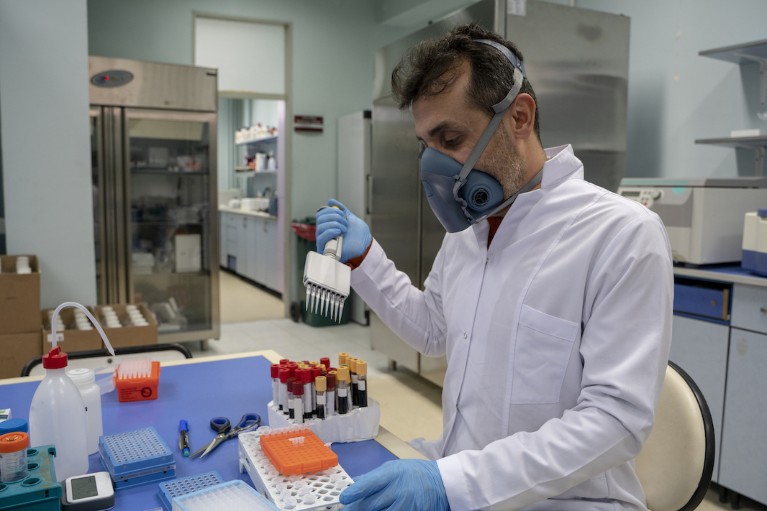
Blood tests can be used to identify gene variants that increase the risk of adverse reactions to drugs. Credit: CihatDeniz/ E+/ Getty Images.
Adverse drug reactions are a major cause of death and disease worldwide. They affect 40% of patients undergoing a pharmacological treatment and account for 15% of hospital spending in OECD countries.
Several factors determine individual susceptibility to adverse reactions, including some genes involved in the metabolism of medicines. Specific gene-drug associations that can increase the risk of adverse reactions have been documented for more than 100 medicines, including analgesics, anticancer drugs, anticoagulants, antidepressants, antiepileptics, antihypertensives, antipsychotics, and more.
Researchers from seven European countries designed a study1 to assess the usefulness of pre-emptive tests for a whole panel of genetic variants currently associated with 39 drugs, to prescribe the right medicine to the right patient in the right dose. The study involved almost 7,000 patients in treatment for various diseases. Half of them were tested for 50 known variants in 12 genes. When a variant associated to an adverse reaction showed up, their therapeutic plan was changed accordingly. The other half of the group received no genetic test and stuck with the recommended drugs. The result was a 30% reduction in the frequency of adverse reactions for the tested group. “It’s much more efficient than testing a patient for a single gene when a specific drug is being prescribed,” says Henk-Jan Guchelaar, professor of Clinical Pharmacy at Leiden University Medical Center and coordinator of the study published in The Lancet.
The Aviano National Cancer Institute in north-eastern Italy carried out the oncological branch of the study, enrolling more than 1,200 Italian patients. “For anticancer therapies, we demonstrated that this strategy prevents serious toxic effects requiring hospitalization, and even fatal reactions”, says Giuseppe Toffoli, director of the Experimental and Clinical Pharmacology Unit at the Aviano National Cancer Institute and senior author of the study.
The project also led to the establishment of European clinical guidelines, a genotyping platform, new tools to store data from individuals such as a smartcard with a QR code, and educational materials for doctors, pharmacists, and patients. “We hope the clinical societies, regulators and health insurance companies will acknowledge the study results and implement it in clinical practice”, says Guchelaar.
In Italy, tests on single gene-drug pairs have recently entered clinical practice, mainly in the oncology sector. “Tests for fluoropyrimidines and irinotecan are the most widely used,” says Cristina Montrasio, coordinator of the Pharmacogenetics Lab at the ASST Fatebenefratelli Sacco University Hospital in Milan. “In addition, there is a growing demand for pharmacogenetic tests for antidepressants, antipsychotics and antiepileptics, but they are only available in a few laboratories.”
According to Emilio Clementi, director of the Clinical Pharmacology Unit at the ASST Fatebenefratelli Sacco University Hospital, and a member of the Italian Society of Pharmacology (SIF), bureaucratic and cultural obstacles still limit the use of such tests. “It’s still not clear who should prescribe the tests, which laboratories are authorized to carry them out, and who should validate them,” he says. “Doctors are not yet prepared to interpret the results and translate them in clinical practice.”
